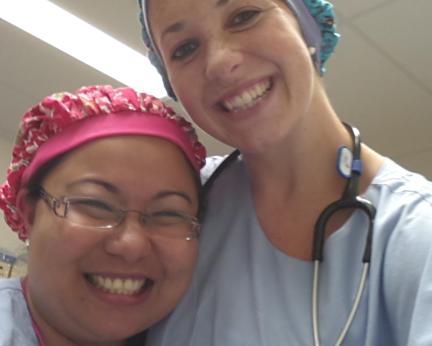The delightful climate on the east coast encourages outdoor life and the more relaxed attitude to hierarchy meant there was plenty of opportunity for socialising with all grades of medical staff and other people I met outside the hospital context. Australia is very cosmopolitan, even away from the big cities – it ‘s very easy to fit in.
The number of amazing places to visit exceeded the time available, but I managed trips to New Zealand, Fiji, the Solomon Islands, the Great Barrier Reef, Blue Mountains, Tasmania , and Sydney several times, including over New Year of course!





